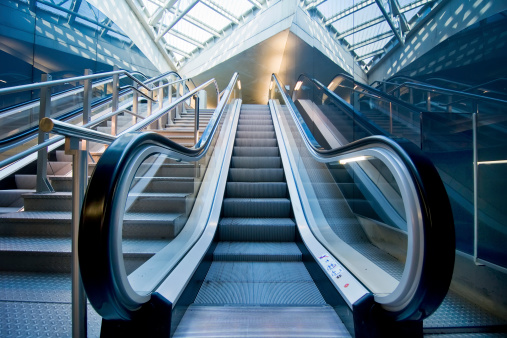Learn what to do after an accident to give yourself the best possible chance of receiving compensation
 Did you know that elevators make about 18 billion trips per year in the US, and escalators are responsible for about 105 billion trips? With so many passengers using these means of transport on a daily basis, it is no surprise that accidents can happen.
Did you know that elevators make about 18 billion trips per year in the US, and escalators are responsible for about 105 billion trips? With so many passengers using these means of transport on a daily basis, it is no surprise that accidents can happen.
Often, accidents can be traced back to negligent equipment maintenance. Perhaps inspections, maintenance, and repairs were not done on time or were done by someone not really qualified for the job. When this is the case, it is entirely possible to seek compensation for elevator or escalator injuries from the building owner or lessee.
Possible Causes of Elevator Accidents
- Unbalanced leveling between the floor and the elevator carriage, causing a trip hazard
- Defective doors that open onto an open shaft or close on a person
- Defective pulley system causing unexpected drop
Possible Causes of Escalator Accidents
- Missing or defective steps or track teeth, causing trip hazards
- Excessive space between steps and sides, which can trap shoelaces or clothing
- Poorly designed handrails
What to Do If You Have Been Injured
If you have been injured in an elevator or escalator accident and you suspect the property owner may be liable, it is important to take the following steps:
- Document the scene.
If you are able to, it is a very good idea to take photos or video of the scene of the accident. This can help capture defects in the equipment that may have contributed to your accident.
- Inform management.
Before leaving the premises, you should make an effort to contact management and inform them of your accident. Make arrangements to get their insurance information or the name of a contact that you can work with regarding your accident.
- Get medical treatment.
Of course, any time you suffer an injury it is wise to get medical treatment. Ideally, you will want to visit the doctor within 24 to 48 hours. Delaying longer may raise questions about the true cause of your injury. However, you can certainly still pursue a claim even if you took longer to get to the doctor, so long as your doctor can confirm your injury was caused by the accident.
- Contact an attorney.
As your final must-do following an elevator or escalator accident, find a skilled premises accident attorney like Fernando D. Vargas and contact them. Your attorney can advise you of your legal grounds for seeking compensation in your specific case and begin handling interactions with the building owner or operator and their insurance company for you.
Need Help Now?
If you have questions about any type of trip and fall or slip and fall injury, contact us at 909-982-0707 and request your free initial consultation with Fernando D. Vargas now.




